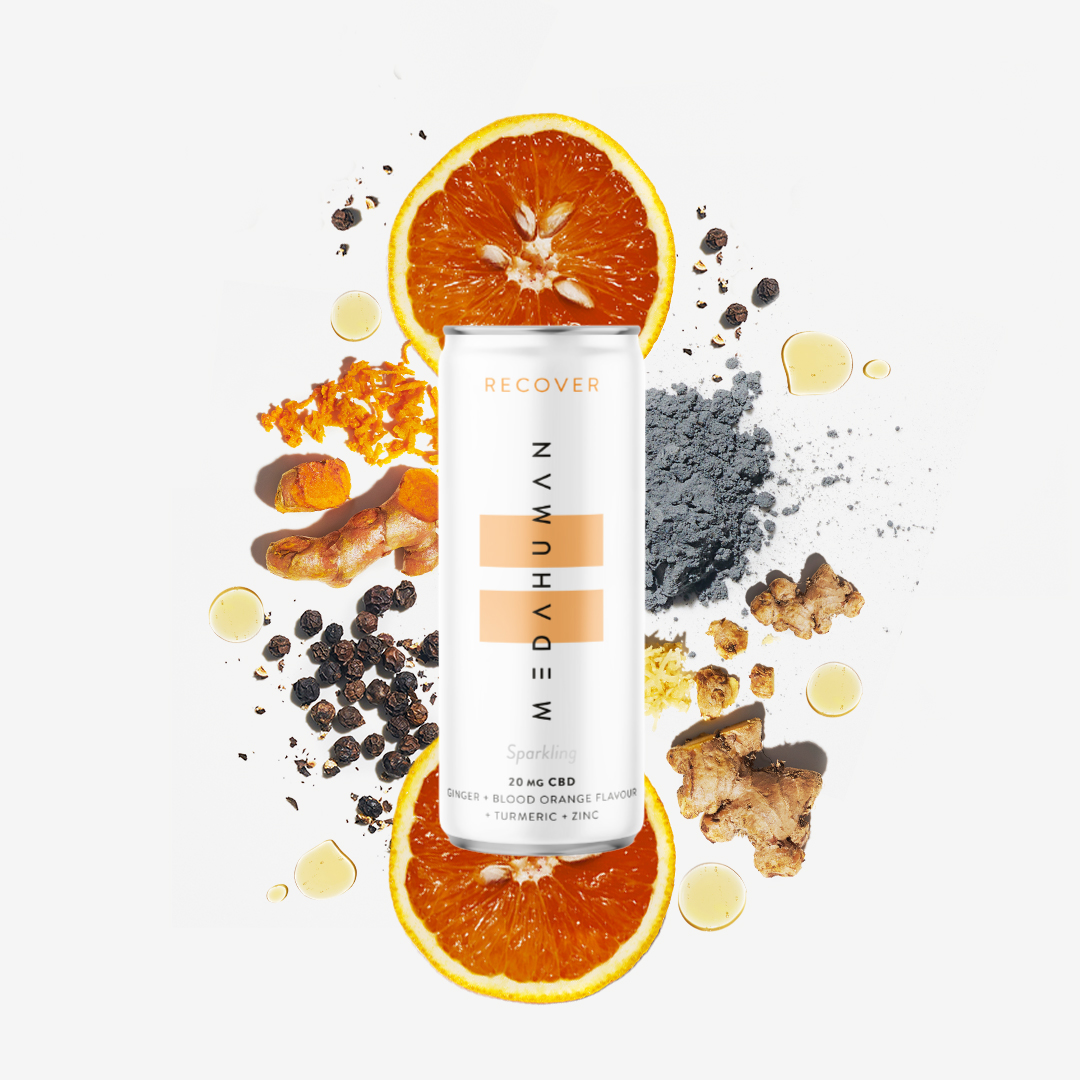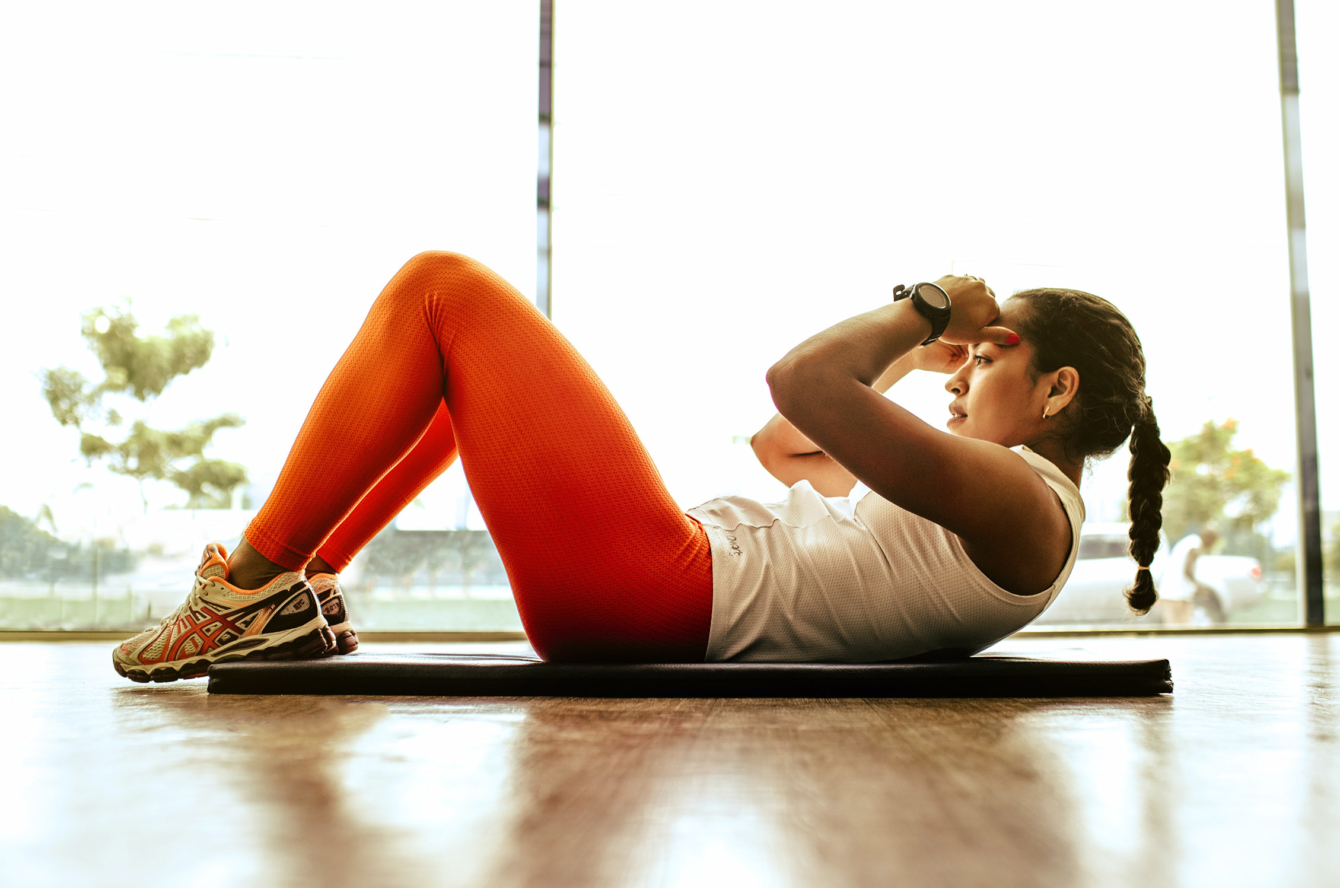TARGETED FUNCTIONAL WELLNESS DRINKS
Nootropics + Adaptogens + Nutrients

HELLO
Welcome to MEDAHUMAN.
At MEDAHUMAN, our mission is simple: to empower individuals on their journey to personal wellness.
Experience the ultimate synergy of science and nature with our delicious range of targeted wellness drinks that promise to deliver on flavour and function. We’ve harnessed the power of carefully selected ingredients, including nootropics, adaptogens, and essential nutrients to create our range of still and sparking drinks to give you energy and focus, relieve stress, nourish your skin from within, help you recover from physical exertion and even help you sleep.
Discover our range of holistic wellness drinks, embrace the versatility and unlock your true potential. From AM to PM, we’ve got a drink that listens to the demands of busy life, helps you regain balance and leaves you feeling better than your best.
WHY CHOOSE MEDAHUMAN?
+ Tailored functional blends
+ Natural ingredients
+ Five delicious flavours to take you from AM to PM
+ Vegan
+ No Nasties
+ Low Calorie
+ Low Sugar
+ Blended in the UK
INTRODUCING OUR FUNCTIONAL WELLNESS DRINKS
ENERGY – A Cranberry and Lime sparkling drink with Ginseng, Vitamin B, Vitamin C and Natural Caffeine to help you focus and relieve symptoms of fatigue.
RECOVER – A Ginger and Blood Orange sparkling drink with turmeric, Piperine, Zinc, Vitamin C and Vitamin D3 to help reduce inflammation and fatigue and offer immune support.
GLOW – A Lime and Elderflower sparkling drink with Aloe Vera, Olive Leaf Extract, Vitamin C and biotin to help nourish and strengthen your skin.
RELAX – A Chamomile and Black Tea still drink with Magnesium, Lemon Balm, Ashwagandha, L-Theanine and Vitamin D3 to help you ease symptoms of anxiety and de-stress.
NIGHT – A Sour Cherry and Hibiscus still drink with Magnesium, Valerian Root Extract and Vitamin D3 to help you sleep and find a more rested you.
WHERE TO BUY
Shop MEDAHUMAN online here or find them at a retailer near you.
STAY IN TOUCH
Follow us on Instagram or Facebook

How your gut affects your mental health:
There is growing evidence that the gut microbiota, our collection of bacteria that live in the gut, play an important role in depression and mood disorders as these microorganisms produce different neurochemicals which our brains utilise to remember, learn and even regulate our mood.
Read on for a deep dive into how looking after our gut health can have a positive knock-on effect on our mood and happiness too!
How gut health and our mood are related:
Ever heard of the gut-brain axis? You’re not alone if you haven’t. The gut-brain axis describes the relationship that occurs between the gut and the central nervous system, also known as the brain. The gut-brain axis encompasses the way in which your gut and brain communicate and work with each other, at both chemical and hormonal levels. There are 3 main neurotransmitters/compounds that play a role in this connection including serotonin, GABA and short-chain fatty acids.
SEROTONIN- The gut is often referred to as our second brain – and for a good reason! Serotonin, our feel good happy hormone, plays a vital role in the communication between the gut and the brain, in addition to the proper functioning of the gut. (1)
Serotonin is a neurotransmitter, also known as a chemical messenger, that has the ability to control and stabilise mood and brain functions, and over 95% of serotonin is created in the gut! What better excuse to look after your gut health! Fluctuations in serotonin levels can impact your gut health as well as brain health. Low levels of serotonin may impact mood, leave individuals feeling low, anxious and in the long-term even depressed.
Serotonin is vital for gut function, controlling:
- How fast food moves through your system
- How much fluid is secreted into your intestines
- How sensitive your intestines are to different sensations such as pain and fullness
GABA – The brain contains many neurotransmitters that trigger or inhibit special reactions in the body. Gaba aminobutyric acid (GABA) is an amino acid that works as a neurotransmitter in the brain. GABA is an inhibitory neurotransmitter as it blocks certain brain signals and decreases activity in the nervous system, and can work to help calm the nervous system. This is why GABA is often referred to as the calming, anti-anxiety brain hormone.
Low levels of GABA have been linked to mood disorders, chronic pain and anxiety. Common environmental factors such as stress and excessive alcohol use may also decrease GABA, which can result in symptoms of depression (2). If GABA is not released efficiently in the body, it can impact mental health and contribute to disorders of the brain and nervous system. (3)
SHORT CHAIN FATTY ACIDS (SCFAs)- SCFAs are produced by the friendly bacteria in the gut, and are the main source of nutrition for the cells in our colon. Studies have shown the correlation between a higher intake of plant foods and increased levels of short-chain fatty acids in stool! (4)
In addition to SCFAs being crucial for gut health, they also play an important role in our mental wellbeing. They have the ability to influence emotional problems and cognitive disorders, in addition to stimulating the production of serotonin and other gut hormones. SCFAs can also directly affect the vagus nerve, which connects the brain and the gut. They do this by helping the body respond to inflammation and the production of neural growth and development.
Overall, keeping our gut bacteria balanced and thriving is key for the production of these important neurotransmitters to further avoid alterations in mood, energy, sleep patterns, memory, concentration, managing stress levels and more. So now to the juicy bit – what can we do to support a healthy gut population? Read on.
Tips to support your mental health through your gut health
- Meditation and gentle exercise are known to increase the production of neurotransmitters- try swapping your HIIT or spin class for some pilates or yoga to give your gut and stress levels some love. (6)
- Get extra diversity in your diet- aim to include a range of colourful fruits and vegetables at every meal as a more diverse microbiome is usually a healthier one.
- Include fermented foods that contain live strains of beneficial bacteria – try kimchi, kombucha, kefir and sauerkraut three times a week.
- Include prebiotic foods as these insoluble fibres will help to feed the existing microorganisms in the gut. Consume raw garlic, onions, asparagus, leeks, flax seeds, Jerusalem artichokes and apples on the regular!
- Up your protein- ensure you are consuming enough protein, especially highlighting tryptophan which is an essential amino acid that is a precursor to the production of serotonin. Think organic turkey, oats, nuts and seeds.
References:
https://pubmed.ncbi.nlm.nih.gov/15790796/ (1)
https://pubmed.ncbi.nlm.nih.gov/8550953/ (2)
https://www.frontiersin.org/articles/10.3389/fncel.2014.00119/full (3)
https://pubmed.ncbi.nlm.nih.gov/26416813/ (4)
https://www.ncbi.nlm.nih.gov/pmc/articles/PMC8428857/ (5)
https://commons.clarku.edu/cgi/viewcontent.cgi?article=1017&context=surj (6)

For some, anxiety is a common daily occurrence, and for each person, their triggers and feelings will be entirely personal. With the onset of COVID-19, there has been an existential rise in those worrying about their health, with this potentially leading to health anxiety.
Health anxiety can be split into two separate disorders:
● Somatic symptom disorder- when someone mistakes normal bodily functions for a symptom of a more serious illness. Common symptoms may include tiredness or pain, but the individual’s reaction to the mild symptoms is extreme.
● Illness anxiety disorder- when a person is overly obsessive with a specific disease or illness. Even though they show no physical symptoms, they still confuse normal bodily processes like bloating as a sign of the onset of the illness they are fearing.
The difference between these conditions is very minimal, with some individuals suffering from both conditions. For this reason, health anxiety is a more common term used to discuss a range of symptoms:
● The individual has no symptoms but is still fearful they are unwell
● A doctor reassures someone they don’t have an illness, but the individual does still not feel comfortable or experience reduced anxiety
● Constantly looking for health information online
● Reading about a disease and worrying they then have it
● Health worries affecting work, family life, socializing and hobbies
● Frequently checking the body for signs of illness
WHAT TO DO IF YOU THINK YOU MAY BE SUFFERING FROM HEALTH ANXIETY:
ACKNOWLEDGE HOW YOU FEEL
Being able to name and take note of your emotions and feelings will be an important first step to reducing anxiety. Sometimes, taking a few deep breaths or writing down how you feel can help you to process your feelings and anxiety. You can always come back to these points later to see if they are still triggering you.
AVOID HEALTH NEWS & ‘GOOGLING’ SYMPTOMS
Searching online trying to read about every covid (for example) update will not help to manage the way you are feeling – this will simply add fuel to your anxiety rather than reassure you. The same goes with health forums! What works or was the concern for one person, does not mean that it will be the same for you. Consider limiting how much you look at health online and seek health from trusted sources only.
TAKE CONTROL OF YOUR THOUGHTS
Dramatic, extreme thoughts can be distressing, and something you will need to take control over. Our thoughts are not facts, and being able to take control of that and word things in a more positive way will help in the long run. If you feel like you are in a spiral of thoughts, take yourself away from the situation – go for a walk, call a friend or watch a TV show.
SEEK HELP
If your health anxiety is impacting your quality of life, then it is best to seek specialized help.Methods including CBT can be helpful for those who suffer from anxiety. One of our favourite places to start is MIND charity.

WHAT IS IT?
Long COVID, which is also now known as chronic COVID syndrome (CCS) is a condition encompassing the long-term complications caused by the one and only, coronavirus.
Long covid is often used to describe the signs and symptoms that continue after the period of time when an individual is testing positive for the virus. It can include both ongoing symptomatic covid, which is usually from 4-12 weeks, and post-covid syndrome, lasting 12 weeks or more.
It is still early days and more research is needed but currently we have the following data:
- Around 1 in 5 individuals who test positive for covid show symptoms for 5 weeks or longer
- Around 1 in 10 individuals who test positive for covid show symptoms for 12 weeks or longer
(1, 2)
WHAT ARE LONG COVID SYMPTOMS?
The symptoms of long covid are entirely different for each person. All different age groups can suffer from long covid, and from the data, we have to date, there is no correlation with whether someone has an underlying condition or not. Many individuals who are young, fit and healthy have been impacted by long covid too.
A whole range of post-covid symptoms have been reported following the infection- These include:
- Breathlessness
- Chest pains
- Palpitations
- Joint and muscle aches
- Loss of smell
- Fatigue
- Headaches
- Brain fog
- Anxiety and depression
- Cognitive difficulties
- IBS
The majority of individuals who suffered from covid symptoms whilst having the virus, managed to recover quickly, going back to their normal routines. However, for some the effects of covid will last weeks or months.
Certain experts have compared long covid with chronic fatigue syndrome, with an ongoing debate around genetics and variations of the virus playing a role in the short and long-term effects of the virus.
HOW LONG DOES IT TAKE TO GET OVER IT
Research is still needed on the exact length of recovery from long covid- due to its wide host of symptoms and individuality. The length of time it takes to recover will vary from person to person.
Research looking at other coronavirus strains, suggests that most long covid symptoms should go within 3 months, with fatigue and tiredness lasting up to 6 months. For a small percentage of individuals, recovery may take longer. (3)
HOW IS LONG COVID DIAGNOSED
Long covid definitions can be:
- An ongoing symptomatic covid for individuals who are still showing symptoms after 4-12 weeks after the start of acute symptoms showing
- Post covid-19 syndrome for people who are showing symptoms for longer than 12 weeks after the start of acute symptoms
The current tools used to investigate if an individual is suffering from long covid include:
- A full blood count
- Liver and kidney function tests
- C-reactive protein test- which is the key marker for inflammation
- Ferritin levels- showing iron deficiency
- Thyroid function
- Exercise tolerance test
- Chest x-ray- offered to individuals suffering after 12 weeks of infection with continuous respiratory symptoms
However many of the symptoms people feel with long covid are not measurable, and for some testing may come back with no answers for as to why they feel they way they do.
LIFESTYLE TIPS
- Eat plenty of fruit and veggies- Aim for 5-10 servings daily to pack in as much plant variety into the diet as possible, this will enhance the gut microbiome.
- Opt for fibre- A minimum of 30-35g per day, try to get this in as much as possible through whole grains, legumes and pulses in the diet
- Choose fermented- fermented foods such as kimchi, sauerkraut, kefir and kombucha can really help to support the gut, which will benefit as gastrointestinal symptoms taking place
- Avoid highly processed foods with lots of added sugars, salt and saturated fats
- Keep calm- it’s important to switch off and take time out for yourself to lower and manage stress levels. Think yoga, meditation and gentle movement
- Take is slow – your body is recovering from a viral infection – let your body recover and give it the rest time it deserves.
REFERENCES
https://www.journalofinfection.com/article/S0163-4453(20)30234-6/fulltext#bib0028 (3)

With shorter days and plummeting temperatures, the likelihood of catching a cold or the flu increases – after all, winter has arrived! To avoid stocking up on boxes of tissues, sipping on Lemsip for the next few months and having a nose as red as Rudolph, read below for Clarissa’s top tips to keep your immune system on top form this winter.
IMMUNE SYSTEM SUPPORT – NUTRIENTS
To help support our bodies during the winter months, try adding in a few of these key vitamins and minerals, required for immune system health.
● Zinc- a mineral that can be topped up from seafood, red meat, pulses, nuts and seeds. A zinc deficiency may potentially impact the immune system’s ability to function optimally, resulting in an increased risk of infection and disease. (1)
● Vitamin C- this potent vitamin and antioxidant that can enhance our immune cells ability to protect against infection. Vit C is also required for cellular death and works by clearing out old cells and replacing them with new ones. (2) Top up your Vit C levels from citrus fruits, broccoli, red peppers and kiwi.
● Vitamin D: Vitamin D has the ability to lower and decrease inflammation, which in turn promotes a healthy immune response. (3) Due to the lack of sunlight in winter, it is advised that from October – April, people living in the UK consider supplementing with the RDI of vitamin D – which is 10mcg/400 IU.
OPT FOR OMEGA 3 – Omega 3 is a form of essential fatty acid that offers a wide range of health benefits including supporting cardiovascular, brain and hormone health.
When it comes to the immune system, omega-3 has been shown to help activate immune system cells such as white blood cells that we need for a robust immune response. (5) In addition, omega-3 fatty acids have anti-inflammatory properties. High levels of inflammation can lead to chronic health diseases include immune-related conditions.
Top up your omega 3 intake by regularly consuming oily fish, such as salmon, sardines, anchovies and mackerel, or plant-based options such as walnuts, flax seeds and chia seeds.
GIVE YOUR GUT SOME LOVE
Did you know that 70% of our immune system is located in the digestive tract? Pretty amazing, right! So what better place to start than the gut when thinking about immune system support.
- Aim for 30g of fibre per day through pulses, wholegrains and keeping the skin of fruit and veg. Fibre helps to feed our gut bacteria and keep our bowel movements regular and healthy.
- Incorporate fermented foods. Through the process of fermentation, these foods contain live bacteria, that can help support the balance of bacteria in the gut. Try out live yogurt, kefir, kombucha, sauerkraut or kimchi.
- Consume Prebiotic foods daily. These foods are insoluble fibres that make their way mostly undigested to the large intestine, where our gut bugs can feed on them. This helps our gut bacteria to stay strong and thrive! Include raw garlic, onion, asparagus, flaxseeds, apples and Jerusalem artichokes on the reg!
BE MINDFUL OF BOOZE – A high consumption of alcohol over time can increase our susceptibility to bacterial and viral infections, as alcohol can trigger inflammation in the gut and destroy microorganisms. (4) Heavy boozing can also make it challenging for the body to properly tend to other critical functions, such as fighting off an infection.
Aim to have no more than 14 units of alcohol a week, have a few nights of a week and consider low alcohol options such as MEDAHUMANS MEDATINI.
REFERENCES
https://www.ncbi.nlm.nih.gov/pmc/articles/PMC2820120/ (1)
https://pubmed.ncbi.nlm.nih.gov/29099763/ (2)
https://www.ncbi.nlm.nih.gov/pmc/articles/PMC6164750/ (3)
https://www.ncbi.nlm.nih.gov/pmc/articles/PMC4590612/ (4)
https://www.ncbi.nlm.nih.gov/pmc/articles/PMC6834330/(5)

A good night’s sleep is just as crucial as regular exercise and a healthy balanced diet.
Research has shown that poor sleep negatively impacts hormones, exercise performance
and brain function. (1)
And yet, sleep quality and quantity is at an all-time low, thanks to the impact of our modern-
day lifestyles, stress, technology and social media. So what can we do to counteract this and
help support a healthy night’s kip?
Try out our MEDA Sleep beverage, an infusion of 100% natural ingredients, blended
together to help you catch your Z’s. Read on below for our in-house nutritionist, Clarissa
Lenherr’s breakdown of why each super-powered ingredient could help support your sleep.
L-THEANINE- L-Theanine is an amino acid that has been shown to effectively reduce
anxiety. Studies have suggested that L-Theanine may increase serotonin, dopamine, and
GABA, an inhibitory neurotransmitter.
L-Theanine can help the brain and body enter the first stage of NREM sleep where there is a
high level of alpha brain waves. L-Theanine can help individuals fall asleep faster and easier
due to its relaxing abilities, helping to lower anxiety levels and promoting relaxation. (2)
VALERIAN ROOT: Valerian Root is a herb that has been used in traditional medicine for
over 2000 years. Often touted as “nature’s valium”, this root and its extract has been used to
help promote tranquillity and improve sleep.
Valerian root contains valerenic acid, isovaleric acid and a variety of antioxidants, all of
which help to promote sleep and reduce anxiety. It has been suggested that Valerenic acid
may inhibit the breakdown of GABA in the brain. High levels of circulating GABA can
contribute to feeling calm and relaxed.
Valerian root also contains antioxidants such as hesperidin and linarin, which may have
sedative and sleep-enhancing properties. (4)
MORELLO CHERRIES: Morello cherries are known for their sour flavour and potential sleep
benefits. The iconic fruit of the English summer, cherries, are a good source of
proanthocyanidins and are a natural source of melatonin – our sleep hormone. Melatonin is
the hormone that helps with the regulation and induction of sleep.
Many clinical studies have concluded that cherries may help improve sleep, and that
consumption of cherries may help to increase melatonin in as little as two weeks. (5)
Tart cherries also contain tryptophan and anthocyanins, two key compounds that may help
the body to produce melatonin and lengthen its effects. Research has shown that taking tart
cherry juice can increase levels of melatonin and help improve overall sleep quality and
duration. (6)
5-HTP: 5HTP is involved in the production of serotonin, our feel-good happy hormone, which
is then able to be converted into the hormone melatonin. Melatonin plays a crucial role in
regulating sleep, with its levels rising in the evening to promise sleep and reducing in the
morning to help you wake up. Taking 5HTP may promote your sleep by increasing melatonin
production in the body.
A study demonstrated that combining 5-HTP paired with GABA significantly reduced the time
it took to fall asleep, increasing overall sleep duration and quality. (7)
Do note that if you are taking any SSRIs or antidepressants, it is worth checking in with your
doctor before consuming 5-HTP.
SCHISANDRA BERRY: Also known as Magnolia Berry, Schisandra Berry is native to
Northern China and it has been suggested that it may help to reduce stress, help boost
mood and immune system health. (8)
Schisandra Berry may help to reduce cortisol levels. Cortisol is a key hormone that helps
maintain the balance of energy and inflammation in the body, but is also one of our major
stress hormones. High levels of cortisol can be at the root cause of a number of health
concerns including increased stress, insomnia, wired and tiredness, anxiety and abdominal
weight gain. (9)
References
https://pubmed.ncbi.nlm.nih.gov/17308390/ (1)
https://www.ncbi.nlm.nih.gov/pmc/articles/PMC6366437/ (2)
https://pubmed.ncbi.nlm.nih.gov/20042323/ (3)
https://www.sciencedirect.com/science/article/abs/pii/S009130570300368X (4)
https://pubmed.ncbi.nlm.nih.gov/20438325/ (5)
https://pubmed.ncbi.nlm.nih.gov/22038497/ (6)
https://pubmed.ncbi.nlm.nih.gov/19417589/ (7)
https://www.ncbi.nlm.nih.gov/pmc/articles/PMC3155223/ (8)
https://www.sciencedirect.com/science/article/abs/pii/S037887410800216X?via%3Dihub (9)

Although peer pressure is usually associated with teens, people of all ages can feel pressured in social situations. A common thread with all social gatherings is alcohol consumption, although one in four people are trying to reduce their drinking, and nearly half of the world’s adult population reports not consuming alcohol at all (1). Times are changing, and not drinking is a real thing.
Make a decision to go alcohol free
Decide before you head out to a party: are you going to drink or not? There is a lot of freedom in making a firm decision and knowing you’re going to stick to it. Don’t be persuaded or peer pressured into drinking, as you can have as much fun without the booze!
Stay positive
Remember that alcohol isn’t the secret to having a good time. When you enter a social situation and believe you cant have fun sober, you’ll isolate yourself and hold back on letting go. Make sober fun possible. Prove to yourself and others that having a good time doesn’t have to include alcohol.
Take your own choice of drink
There’s nothing worse than standing empty handed whilst everyone around you is downing the booze. MEDA’s delicious alcohol free mixers or non-alcoholic alternatives are great tasting and a savvy choice of drink to replace that alcoholic beverage.
Prepare a response
It will surprise you how many people won’t notice you’re not drinking, but it’s worth thinking about what you’ll say if someone is being nosey. Once they see you slurping on something that looks as good as the MEDA range, they’ll be sure to want a sip of it too!
Prioritise your health
MEDA’s drinks are a fabulous alternative to sugar-loaded mixers and alcoholic beverages. When not drinking alcohol, MEDA’s drinks are a great choice to implement a dose of wellness into your decision. MEDA’s selection also comes with added health benefits which will leave you feeling energised and fresh the next morning, as all are 100% natural, vegan, gluten free and low calorie.
Leave when you want
Head home when you feel ready to. Don’t feel like you have to stay until the end. And if people are drunk, they may not even notice! Plan your escape route beforehand, and enjoy being in control of your own decision.
Hangover free
Make the most of being hangover free by doing something enjoyable or productive. Having more productive time and energy will motivate you to not drink more often.
Overall, appreciate the moment as it’s an event you’ll remember!

How CBD Can Help Your Body Recover
Recovery is a hot topic. Recovery from exercise, illness and maybe even…. Lockdown? While we can’t promise that CBD will help ease us out of a year of lockdown, we can tell you that CBD can improve recovery when it comes to exercise, inflammation and sleep. CBD has the power to speed up recovery thanks to its anti-inflammatory properties.
Read on for a number of reasons behind why CBD should be your first choice when it comes to an active and speedy recovery.
CBD is Anti-Inflammatory
It is a natural anti-inflammatory, helping muscles to heal faster. It is also recognised for its role in chronic pain improvement and anxiety management (2).
CBD is available in many different forms, some find edibles (such as oral oil or MEDA’s CBD wellness drinks) work best, while others find topical products (body creams) more effective.
For Exercise
We all know exercise is good for us. It supports energy production, confidence, weight management, cardiovascular health and mood. But some forms of high intensity exercise can actually damage your muscles, no matter your fitness level. This damage can trigger inflammatory processes in the body and lead to pain and swelling. Research indicates that CBD may play a role in reducing inflammation associated with pain while also supporting mobility, thanks to its anti-inflammatory and antioxidative effects (1,7).
If you are finding your recovery time is getting in the way of your fitness goals, you may want to consider introducing CBD into your post-workout routine.
Sleep Recovery
Studies report that CBD may promote sleep, which is the optimal time for muscle recovery to take place (8). While sleeping the body produces melatonin, a human growth hormone, which helps muscle recovery. If you’re lacking a good quality night’s sleep due to post-workout pain, anxiety, caffeine consumption, jet lag, or stress, your muscles will struggle to fully recover.
Consider drinking MEDA Sleep, a botanical blend of CBD, valerian root and cherry.
Synergistic Herbs for Recovery
Ginger and turmeric are two ingredients that have been shown to help reduce pain and protect against disease due to their mighty anti-inflammatory properties. Research has shown that turmeric may be as effective as taking anti-inflammatory medications such as ibuprofen(3), whilst Curcumin, the active ingredient in turmeric could also help decrease pain caused by conditions such as arthritis (5).
Both ginger and turmeric are a powerhouse when it comes to anti-inflammatory qualities, and with MEDA’ S Recover drink combining the two with high quality CBD, it is a recovery dream.
If you are currently taking any medication, pregnant, breastfeeding or dealing with a chronic medical condition, please check in with your doctor before taking any supplements.
References:
https://www.frontiersin.org/articles/10.3389/fneur.2018.00183/full (1)
https://www.ncbi.nlm.nih.gov/pmc/articles/PMC2828614/ (2)
https://pubmed.ncbi.nlm.nih.gov/11710709/ (3)
https://www.ncbi.nlm.nih.gov/pmc/articles/PMC7338332/ (4)
https://www.ncbi.nlm.nih.gov/pmc/articles/PMC4686230/ (5)
https://www.ncbi.nlm.nih.gov/pmc/articles/PMC5576607/ (6)
https://pubmed.ncbi.nlm.nih.gov/21238581/ (7)
https://pubmed.ncbi.nlm.nih.gov/7028792/ (8)

Having just passed the one year lockdown anniversary, there is no doubt that many of us will have found ourselves feeling tired. Stress levels paired with potentially increased sugar, caffeine and alcohol quick fixes may have provided a pick-me-up, but after those highs…
Here are some fatigue fighters that can leave you refreshed and give you that much needed boost for Spring, and British Summer Time has officially arrived!
Move
Taking a walk outside gives us a boost of energy by enhancing circulation, prompting our circadian rhythm which helps support natural energy production and keeping muscles moving. Although fresh air is best, making the effort to move around in some way, every hour, can be beneficial. If you’re working from home, do some stretching or dancing in between zooms — make sure you haven’t left your camera on;)
Energising Scents
In the office or working from home, the air surrounding us can become stale, which does not help when trying to stay alert! Recuperate and feel a boost by using essential oils. These super scents will help to refresh your environment and potentially promote energy levels. When using essential oils to fight fatigue and get energised, it is important to use oils with natural, clean ingredients.
Try Lemon oil, the zingy essential oil known for its uplifting and energising effects, or Eucalyptus which helps to reduce tension and anxiety.
Hydrate
When we are dehydrated, we can feel tired, sluggish and generally low. Our brain is strongly influenced by hydration levels, with studies showing that even mild dehydration can impact many aspects of our brain function (5).
With mild dehydration affecting us physically and mentally, ensuring you are drinking enough water is one of the best things you can do for your overall health (6).
Make sure to drink 1.5 to 2L of water every day. However, any beverage counts towards our daily intake, so if you’re not a fan of water, try MEDA’s delicious CBD drinks
Eat for Energy
Choosing foods with a low Glycemic Index may help avoid the lag in energy that can occur after consuming sugary snacks. We obtain the majority of our energy from the foods we consume, therefore fueling your body with good quality food that pack an energy punch can contribute to feeling boosted.
The aim is to achieve more stable energy levels maintained throughout the day. Try reducing refined carbohydrates and sugars, which can cause chaotic spikes in blood sugar levels, leading to adrenal imbalance (4).
Whole grain foods with a low GI can contribute to balanced energy. They include: nuts and seeds, high fibre veggies and healthy fats such as avocados and olive oil.
Vitamin D
With spring we welcome a little more sunlight, and oh does it feel good! Sunlight can stimulate natural energy production and is one of our primary sources of Vitamin D. It has been linked to enhanced mood (1) among other benefits such as immune system support and energy production. We all require Vitamin D for bone health, but do not get enough from just food alone. Supplements and sunshine are the way to go here. In the Autumn and Winter, supplement with at least the RDI of 10mcg per day, and in summer try to get 10-20 minutes of sun exposure on your skin every day!
Sweat
Exercising first thing in the morning can boost energy levels, reduce stress and help to boost your mood. A productive morning workout can set a positive and energised tone to your day. Avoid high intensity exercise in the evening as this may impact your ability to fall asleep at night. (2)
https://www.ncbi.nlm.nih.gov/pmc/articles/PMC2908269/ (1)
https://www.tandfonline.com/doi/full/10.1080/21679169.2019.1623314 (2)
https://www.ncbi.nlm.nih.gov/pmc/articles/PMC4061837/ (3)
https://www.ncbi.nlm.nih.gov/pmc/articles/PMC4214609/ (4)
https://academic.oup.com/jn/article/142/2/382/4743487 (5)

Vitamin D has received superstar status over the past year. And for good reason. Aside from its role in immune system function it contributes to mood, energy production, skin, bone health, and even sleep.
But what is the real deal when it comes to getting vitamin D naturally? Can we synthesise vitamin D when it is cloudy outside? Is sitting by a window inside enough? Read on as our nutritionist answers the most popular questions when it comes to vitamin D and the importance of light to our health and wellbeing.
How is vitamin D created
When our skin is exposed to sunlight, we synthesise vitamin D from cholesterol. To be exact, it is the ultraviolet B UVB energy that is responsible for this conversion. From there, vitamin D is carried to the liver and kidneys and transformed into active vitamin D and utilised in the body.
Remember when the sun is shining, not to miss the opportunity, to get outside and expose your skin to the sunlight to synthesise vitamin D.
Can we get vitamin D at any time of the day?
Midday is the best time to get sunlight, especially during the summer months. At noon, the sun is at its peak and this is when we get the strongest UVB rays. The stronger the UVB rays are at a time of day, the less time we need to spend in direct sunlight to get enough vitamin D.
How long do we need to spend outdoors?
According to the NHS there is no exact number of minutes, however most guidance suggests 15 minutes for a person with light skin is ample and this can go up to a few hours if you have darker skin.
People with darker skin typically have more melanin (a pigment in the skin) than those with lighter skin, which helps protect the skin against excess sunlight and damage. Therefore, those with darker skin will need significantly more time in the sun to reach their recommended daily intake.
Can we get vitamin D all year round?
In the UK, our sunlight doesn’t contain enough UVB rays between the months of October to March for our skin to be able to create enough vitamin D, which is why the NHS recommends that those living in the UK with little travel should consider a vitamin D supplement of 400iu/10mcg.
What about sun cream?
Sun cream may reduce the body’s ability to produce vitamin D as it protects our skin from UBV rays – we are not entirely sure how much. Most short-term studies show there is little difference to blood levels of vitamin D. It is best advised to wear a minimum of 15 SPF when sitting in the sun and the SPF factor should be more depending on how sensitive your skin is to sunlight.
What about sitting near a window?
Our bodies cannot synthesise vitamin D when sitting indoors by a sunny window. This is because ultraviolet B rays, the ones we need to produce vitamin D, are blocked by glass.
Why is natural light important?
The importance of natural light exposure goes beyond providing us with vitamin D.
Natural light prompts our circadian rhythm (our body clock) via light sensors within our eyes. Our eyes detect light and adjust our body clock so that the internal and external day are aligned.
With less natural light, particularly during the winter months, we can find our energy levels low or our sleep disrupted.
My top tip is to get natural light in your eyes in the morning to support that natural energy production or to give yourself a natural energy boost in the afternoon.